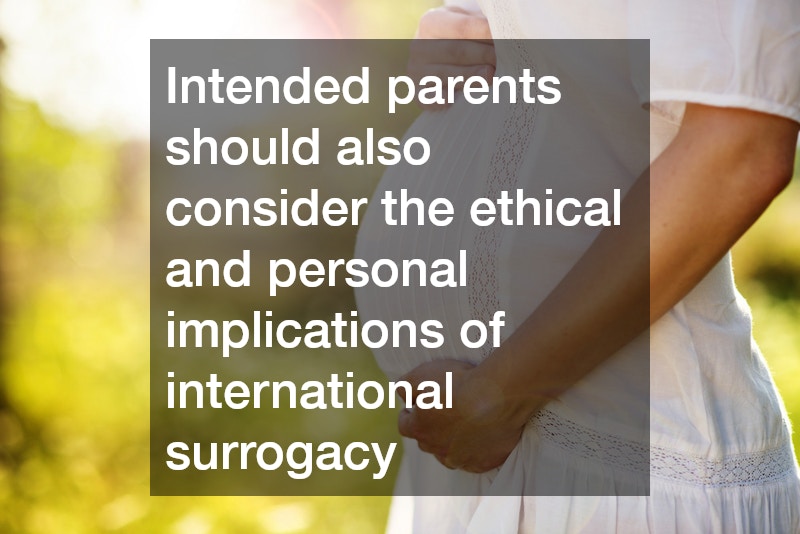Surrogacy offers new possibilities for families who, due to medical or other reasons, cannot have children through traditional means. You may be asking yourself, ” how much for surrogacy?” It’s a complex process that requires substantial emotional and financial commitment. Understanding the costs associated with surrogacy is an essential step for prospective parents contemplating this path. The expenses can vary widely based on several factors including the type of surrogacy chosen, the country where the process is conducted, and additional medical and legal requirements.
This article aims to break down these costs, offering a comprehensive overview for those considering surrogacy as a route to parenthood.
The Basic Costs of Surrogacy
The journey of surrogacy begins with understanding the basic costs involved. The initial expenses typically include agency fees, which can range from $10,000 to $20,000 or more, depending on the agency and the services they provide. Moreover, intended parents must consider legal fees, which can vary but usually amount to between $5,000 and $15,000. These legal costs cover the drafting of agreements and legal representation throughout the process. It’s crucial to select an experienced attorney specializing in reproductive law to ensure all legal aspects are handled properly.
Medical expenses form another significant portion of surrogacy costs. These costs can range from $12,000 to $30,000 for procedures such as in vitro fertilization (IVF), embryo transfer, and other medical necessities related to the surrogate’s pregnancy. It is important for intended parents to have a clear understanding of these expenses and what insurance may or may not cover. Insurance policies can be complex, and not all surrogacy-related medical fees are covered, so being proactive in understanding these details is critical.
Compensation for the surrogate herself is another major factor in the cost of surrogacy. Surrogate compensation can range from $20,000 to $50,000, depending on factors such as the surrogate’s experience and the geographical location. This compensation is not just a payment but also an acknowledgment of the surrogate’s commitment and efforts. Furthermore, certain situations, like a surrogate carrying multiples or requiring a cesarean delivery, can involve additional compensation. Understanding these variations can help intended parents better budget for the entire process.
Additional Expenses and Considerations
Beyond the basic costs, there are additional expenses that intended parents need to prepare for. These can include travel expenses if the intended parents or the surrogate live in different locations. Visits for medical appointments, legal meetings, and eventually the birth can accumulate to a significant amount, potentially reaching thousands of dollars. It’s important for intended parents to discuss travel plans and potential costs early in the process to avoid surprises.
Psychological evaluations and support services are another consideration. Both the surrogate and intended parents often undergo psychological assessments to ensure readiness and compatibility for the surrogacy process. These services are important for safeguarding the emotional wellbeing of both parties and are typically required by agencies before the process begins. The costs for these evaluations and ongoing support services can range from $1,000 to $3,000.
Furthermore, one must consider the possibility of unforeseen medical expenses during the pregnancy. Complications in pregnancy, though not common, can occur and may require additional medical interventions and costs. It is wise for intended parents to set aside a contingency fund to cover unexpected expenses. Peace of mind can often be worth the additional preparation, especially when navigating something as significant as starting a new family.
International Surrogacy: Weighing the Options
International surrogacy is an option that some intended parents consider, often because of lower costs in other countries. Countries like India and Ukraine have been known to offer more affordable surrogacy services compared to the United States. However, while the cost can be lower, international surrogacy involves additional complexities, such as varying legal regulations and the logistics of international travel. It’s critical for intended parents to fully understand the legal framework and cultural context of the country they are considering for surrogacy.
There are risks associated with international surrogacy that must be weighed against the potential cost benefits. For instance, legal rights can be less clear, and ensuring citizenship for the newborn can be more complicated. These issues require thorough research and consultation with international reproductive law experts. Consulting agencies that specialize in international surrogacy can provide invaluable guidance and help navigate these complex waters.
Intended parents should also consider the ethical and personal implications of international surrogacy. It’s important to consider the treatment and compensation of the surrogate in the chosen country, ensuring that ethical practices are followed. The decision to pursue surrogacy internationally carries a significant responsibility to ensure that all parties are treated fairly and with respect. With careful planning and consideration, international surrogacy can be a viable path to parenthood.
.

